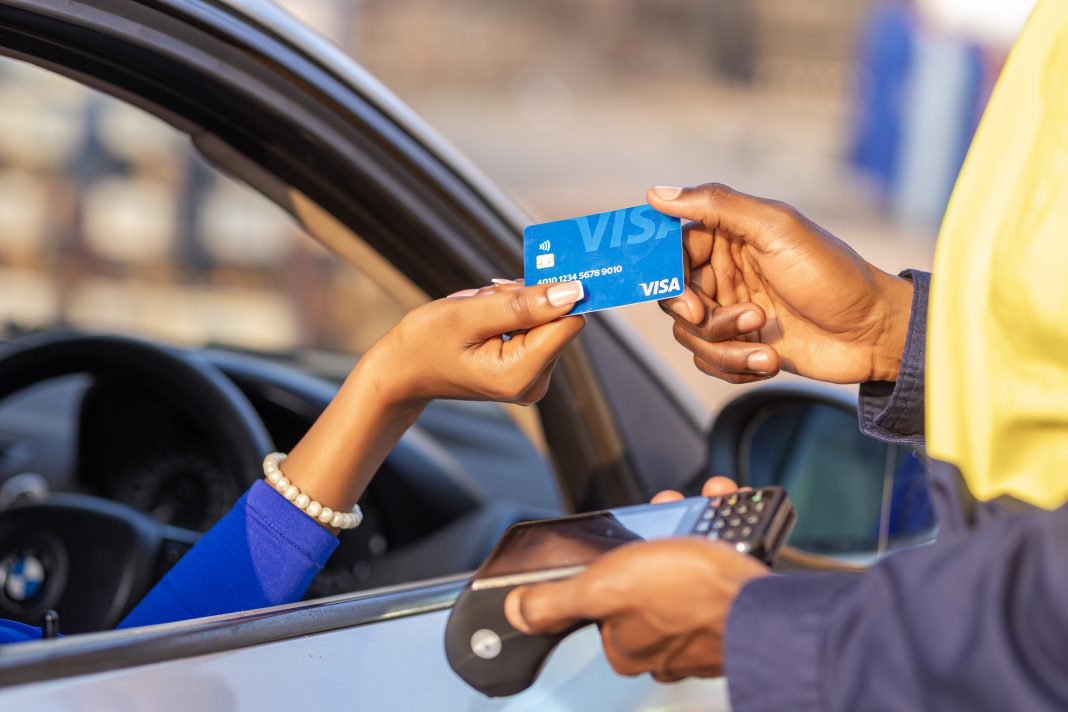Uganda’s digital payments landscape is undergoing a transformative shift, accelerated by the COVID-19 pandemic and evolving consumer preferences prioritizing convenience, speed, and security. While mobile money has seen widespread adoption, card payments have faced challenges, including merchant surcharges at point-of-sale terminals and limited awareness regarding the advantages of card transactions.
The introduction of the “Sasuza Visa” campaign in 2021, spurred by the Bank of Uganda’s directive to eliminate merchant surcharges and minimum transaction thresholds, marked a significant milestone in the adoption of card payments. This initiative, complemented by efforts from supervised financial institutions under the Uganda Bankers Association and fintechs, has led to a notable increase in card usage with active debit cards surging by 22% to 3.3 million, accompanied by a 23.5% rise in transaction volumes. Moreover, credit card transfers surged by 60.7% to UGX 66.4 billion, with a 10.4% increase in POS transactions.
Despite these advancements, there remains untapped potential in the realm of card payments. With merchants no longer imposing surcharges, the benefits of transitioning to card payments are becoming increasingly evident. In this exploration, we delve into the diverse advantages that card payments offer to Ugandans, emphasizing the ongoing significance of the second edition of the Sasuza Visa campaign.
1. Convenience
First and foremost, the convenience offered by card payments cannot be overstated. Whether it’s purchasing groceries, dining out, or refueling vehicles, the days of grappling with cash and hunting for exact change are swiftly becoming a relic of the past. Visa’s global acceptance ensures that Ugandan consumers can transact seamlessly not just locally, but also internationally, eliminating the need for cumbersome currency exchange processes.
Moreover, the advent of contactless payment technology brings in a new era of transactional efficiency. With a simple tap, consumers can expedite their purchases which in turn reduces waiting times and enhances overall convenience. This innovation aligns with the evolving needs and preferences of modern consumers, who prioritize speed and simplicity in their transactions.
2. Security
In an age marked by escalating cyber threats and financial fraud, security emerges as a paramount concern for consumers. Fortunately, card payments offer robust built-in security features, including encryption technologies and dynamic data authentication. Visa’s tap-to-pay technology, bolstered by EMV chips, provides an added layer of protection against fraudulent activities, mitigating risks associated with traditional magnetic stripe cards.
Furthermore, Visa’s zero-liability policy and cardholder protection initiatives instill confidence among consumers, assuring them of recourse in the event of unauthorized transactions. As fraudsters deploy increasingly sophisticated tactics, the security afforded by card payments becomes indispensable, safeguarding consumers’ financial interests and fostering trust in digital transactions.
3. Accountability
Beyond transactions, card payments serve as a catalyst for financial empowerment and literacy. Debit cards, in particular, offer real-time insights into individuals’ spending habits, enabling them to make informed financial decisions and exercise prudent budgeting practices. By leveraging intuitive banking apps and online platforms, consumers gain unprecedented visibility into their financial portfolios, facilitating proactive financial management.
The ability to monitor spending patterns in real-time equips consumers with the tools to track expenses, identify trends, and adjust budgets accordingly. This heightened accountability fosters a culture of financial responsibility, empowering individuals to take charge of their financial well-being and pursue long-term financial goals with confidence.
4. Building a Credit Score
Perhaps most importantly, card payments play a pivotal role in shaping individuals’ financial futures by facilitating the establishment of credit histories and scores. Prudent use of credit cards empowers individuals to seize opportunities and fortify their financial futures. Credit card usage plays a vital role in cultivating robust credit scores, facilitating access to credit from a variety of financial institutions. By extending credit for transactions, credit cards necessitate timely repayment, reflecting responsible credit management and fostering positive credit scores over time.
A strong credit score offers numerous advantages, including favorable loan terms, expanded credit limits, and lower interest rates. This bolsters individuals’ credibility as borrowers, increasing the likelihood of loan approval and smoothing financial transactions and negotiations. Ultimately, credit cards function not merely as transactional tools but as vehicles for building financial health and enhancing one’s standing in the financial landscape.
5. Rewards and Loyalty Programs
In addition to their transactional functionality, present an array of rewards and loyalty programs designed to enrich the cardholder experience. From cashback offers to travel perks and exclusive privileges, these programs incentivize continued card usage while enhancing consumer value. Tiered rewards structures encourage consumers to maximize their spending, unlocking increasingly attractive benefits and reinforcing brand loyalty in the process.
Beyond the financial incentives, credit card rewards offer access to exclusive experiences and tailored services, elevating the overall consumer experience. Whether it’s VIP treatment at airports or complimentary hotel stays, these perks cater to consumers’ diverse lifestyles and preferences, transforming mundane transactions into memorable moments.
Ultimately, the case for Ugandans to switch to card payments is compelling and multifaceted. From convenience and enhanced security to empowerment through financial literacy and access to exclusive rewards, the transition to card payments heralds a new era of financial empowerment and opportunity.
You can join this switch by paying with your Visa card on your next shopping trip or Valentine’s gift today.








